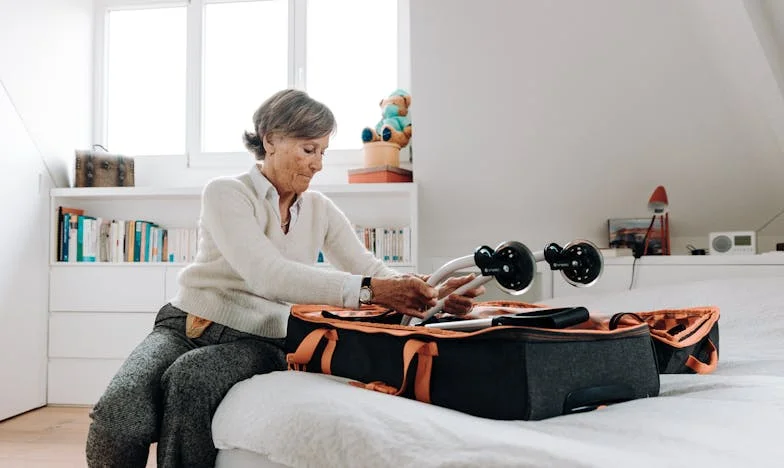A Bench in Central Park: The Day I Met Myself Again
“Why do you always sit here alone?” I asked, watching the little girl’s small fingers toss crumbs of stale bagel to a flock of greedy pigeons. It was a bright Saturday morning in Central Park, and yet she seemed to exist in a pocket of gray, entirely untouched by the laughter of joggers and the shrieks of children nearby.
She didn’t look up. “Because everyone leaves eventually. Pigeons don’t. They come back.”
Her words struck me deeper than I cared to admit. My name is Emily Carter, and I’m a psychologist—or at least, that’s what my blog header says. I write about resilience, about overcoming childhood wounds, about building better futures. But there, on that bench, it was as if my own ten-year-old self was staring back at me through the tangled brown hair and wary blue eyes of this little girl.
I first noticed her a few weeks ago, always alone, always with a half-eaten bagel, always feeding the pigeons in the same spot. She reminded me of myself years ago, after my parents’ divorce, when my whole world collapsed and my mother remarried almost immediately. Back then, I’d sit on the cold steps outside our Brooklyn brownstone, clutching a bag of bread for the sparrows, hoping someone—anyone—would notice how lost I felt.
The second time I saw her, I tried to make small talk. She told me her name was Maddie. She lived with her dad now. Her mom had moved to Florida with her new husband, and Maddie only got to visit during school breaks. When she spoke about her mom, her voice grew tight, brittle, as if she were afraid even the pigeons might judge her for missing someone who had left.
That third Saturday, I brought her a hot chocolate from the corner cart, pretending it was an extra by mistake. “My mom used to get me these on weekends,” she said, barely above a whisper, her fingers curled tight around the cup. “She always said it was our little tradition. But now she doesn’t remember. She has new traditions. New everything.”
I sat quietly beside her, the wind biting my cheeks, the weight of her loneliness settling on my shoulders. It was like looking into a mirror. My mom had done the same—remarried, moved away, sent postcards and birthday gifts that grew less personal every year. I’d spent so long building walls, becoming “strong,” that I’d forgotten how much it hurt to be left behind.
“You know, sometimes grown-ups make mistakes,” I offered gently. “They think they’re doing what’s best, but they forget what we need most.”
Maddie sniffled, wiping her nose on her sleeve. “I just want her to come back. Or at least call more. Dad tries, but he’s always tired. He doesn’t get it.”
She looked up at me, searching for answers I didn’t have. And suddenly, I realized: all my years of training, all my blog posts about healing and moving forward, none of it mattered if I couldn’t be honest—with Maddie, and with myself.
“My mom left too,” I confessed, my voice trembling. “I used to sit on a bench, just like this, hoping she’d come back. I was angry. I thought maybe if I was better, or quieter, she’d stay. But it wasn’t my fault. And it’s not yours either.”
Maddie stared at me, wide-eyed. “Do you still miss her?”
I hesitated. “Sometimes. But I learned to let other people in. I found friends, teachers, people who cared. It’s… it’s still hard, but it gets easier.”
A long silence settled between us, filled only by the cooing of pigeons and the distant hum of city life. I watched Maddie mull over my words, her small face scrunched in concentration.
“Do you think she misses me?” she asked finally.
I squeezed her hand. “I think she does, in her own way. But sometimes grown-ups are too wrapped up in their own pain to see ours. That doesn’t mean you aren’t worth missing.”
We fell into a routine after that. Every Saturday, I’d find her on the same bench. We talked about school, about books, about the best places to find bagels in the city. Sometimes she’d ask about my childhood; sometimes, I’d just listen. The more we spoke, the more I realized how much I’d buried my own hurt beneath layers of professionalism and polished blog posts.
One afternoon, Maddie brought me a drawing—a bench under a wide, blue sky, with two stick figures surrounded by pigeons. “For you. So you remember you’re not alone either,” she said, shyly.
Tears stung my eyes. I hung her picture over my desk at home, right above my computer, where I write about healing and hope. For the first time in years, I didn’t feel like a fraud. I wasn’t just writing for my readers—I was writing for myself, and for Maddie, and for every lost child still sitting on a bench, waiting to be seen.
That winter, Maddie’s mom called more often. Her dad started coming to the park, too, sitting awkwardly at first before learning to talk to Maddie about things that mattered. I watched them, quietly proud, knowing that even small connections can start to mend big wounds.
Sometimes I wonder, do we ever really stop being that lonely child on the bench? Or do we just learn to look up and see who’s sitting beside us?
